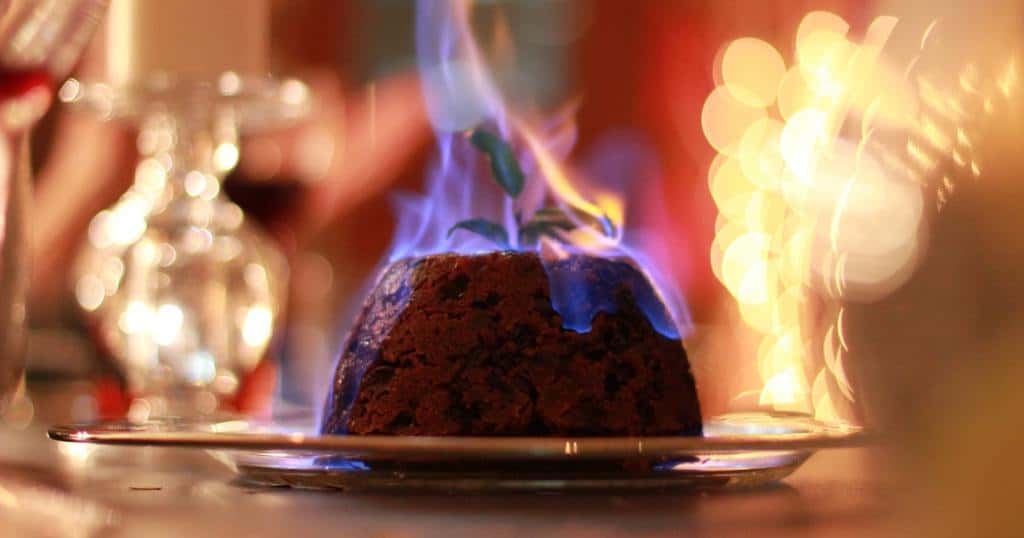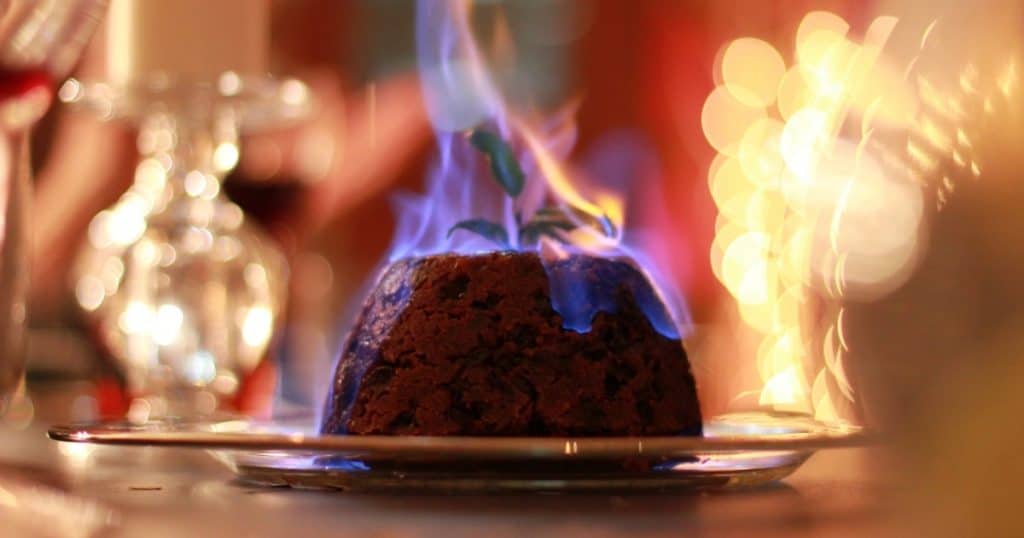
This website uses cookies to improve your experience. We'll assume you're ok with this, but you can opt-out if you wish. Read More
The Next Round: What happens after you change your drinking?

We get asked a lot of questions about cooking and alcohol. Does alcohol burn off when cooked? What can I use instead of alcohol when I cook? Can I cook with alcohol while pregnant? Hopefully this will clear up any confusion around cooking with alcohol, and give you all the information you need to make the best choices for where you are with alcohol right now.

It’s important to think about why we might eat something that contains alcohol. It is nigh on impossible to become intoxicated from eating foods that contain alcohol. Indeed, many foods contain a trace amount of alcohol without our even knowing about it, soy sauce, ripe fruit, fermented foods etc. Our intention when eating is surely to enjoy the flavour of a delicious meal, and not to experience the effects of drinking alcohol. As such, we think it is ok for you to eat a sauce that was cooked with wine for example. The more important question however, is how you feel about alcohol in food. Would a dessert with a flavour of rum set you thinking about having a drink? Perhaps you’re moderating and try to avoid drinking at home, so having alcohol in wouldn’t suit your plans. Whether you choose to consume alcohol in foods is a personal choice that you need to make based on where you are in your own journey.
The age old question we hear time and time again, ‘does alcohol burn off when cooked?’. The answer is a little complicated. Essentially, this varies depending on the cooking method and the time involved in the cooking process. Cooking will always result in some, but not total loss of alcohol. The most effective way of reducing the amount of alcohol is by evaporation during cooking. Despite common misconception, flaming results in much smaller amounts of alcohol burn-off. Take a look at this alcohol burn-off chart from the US Department of Agriculture, which provides some detailed examples.
Lucky for me, my partner is a sober chef and we do a lot of cooking in this household. He actually doesn’t mind a little alcohol in cooking, if we were making a sauce he might buy a miniature bottle or wine or similar, so there is none wasted after the cooking. If this doesn’t work for you, that’s fine, because there are loads of ways to bring richness and flavour to your cooking. You’ll also find that for many dishes, if you use a good quality stock, you won’t notice the wine is missing anyway.
I always think of the flavour or characteristic that I am seeking from alcohol, and consider what else could bring that.
Even if you don’t enjoy drinking alcohol-free alternatives, they may still make excellent substitutions in the kitchen. Alcohol-free stout can make a great contribution to a hearty stew or a sumptuous chocolate cake. Try an alcohol-free wine for classic sauce cookery. There are lots of interesting spirits available from the likes of Lyres that you could use to flavour desserts and baked treats.
A quick gastrique is a brilliant way to bring richness and depth of flavour to a sauce without adding alcohol.
Simply combine sugar and vinegar in a pan, and reduce to create a slightly thick and glossy consistency. Add this to sauces and gravys to boost flavour. Play around with different vinegars and quantities. You don’t want it to be too sweet or too sharp, and you don’t want to add too much. Too much can make your dish taste a little artificial and processed. Play around and see what works for you.
We make use of a vast number of vinegars. I use these in moderation, adding a small dash at a time and tasting as I go to find the right balance. You wouldn’t be as generous with these as you might be with a glug of wine.
A favourite of mine is Henderson’s. Henderson’s Relish has a spirit vinegar base and has a spicy, fruity, yet savoury profile. It’s not dissimilar to Lea & Perrins, but it is both vegan and gluten free. Both are great for adding to hearty dishes, think meaty pie fillings, bolognese, or cheese on toast.
It may sound crazy, but you could consider substituting wine for a small amount of juice. Try a dash of apple juice or white grape juice in place of white wine. Pomegranate, cranberry, or red grape juice could be used in place of red wine.
A good quality stock can go a long way toward creating a rich and flavoursome dish. Seasoning is also essential. A lot of folk under-season dishes, perhaps because we see so much scaremongering around the use of salt. But try a quality salt like Maldon Sea Salt and build layers of seasoning. For example, if you’re making a ragu, salt the onions etc that you sweat down at the beginning. Salt again when you add your protein, and when the sauce is in the finishing stages, taste and adjust again if needed. This can take something from being one dimensional to being quite a dynamic and impressive dish.
If you’re looking for alcohol-free alternatives to use in your cooking, we highly recommend you check out Wise Bartender for a fantastic range.
This website uses cookies to improve your experience. We'll assume you're ok with this, but you can opt-out if you wish. Read More
| Name | Domain | Purpose | Expiry | Type |
|---|---|---|---|---|
| wpl_user_preference | joinclubsoda.com | WP GDPR Cookie Consent Preferences. | 1 year | HTTP |
| PHPSESSID | www.tickettailor.com | PHP generic session cookie. | 55 years | HTTP |
| AWSALB | www.tickettailor.com | Amazon Web Services Load Balancer cookie. | 7 days | HTTP |
| YSC | youtube.com | YouTube session cookie. | 55 years | HTTP |
| Name | Domain | Purpose | Expiry | Type |
|---|---|---|---|---|
| VISITOR_INFO1_LIVE | youtube.com | YouTube cookie. | 6 months | HTTP |
| Name | Domain | Purpose | Expiry | Type |
|---|---|---|---|---|
| _ga | joinclubsoda.com | Google Universal Analytics long-time unique user tracking identifier. | 2 years | HTTP |
| sbjs_migrations | joinclubsoda.com | Sourcebuster tracking cookie | 55 years | HTTP |
| sbjs_current_add | joinclubsoda.com | Sourcebuster tracking cookie | 55 years | HTTP |
| sbjs_first_add | joinclubsoda.com | Sourcebuster tracking cookie | 55 years | HTTP |
| sbjs_current | joinclubsoda.com | Sourcebuster tracking cookie | 55 years | HTTP |
| sbjs_first | joinclubsoda.com | Sourcebuster tracking cookie | 55 years | HTTP |
| sbjs_udata | joinclubsoda.com | Sourcebuster tracking cookie | 55 years | HTTP |
| sbjs_session | joinclubsoda.com | SourceBuster Tracking session | Session | HTTP |
| Name | Domain | Purpose | Expiry | Type |
|---|---|---|---|---|
| mailchimp_landing_site | joinclubsoda.com | Mailchimp functional cookie | 28 days | HTTP |
| __cf_bm | tickettailor.com | Generic CloudFlare functional cookie. | Session | HTTP |
| NID | google.com | Google unique id for preferences. | 6 months | HTTP |
| Name | Domain | Purpose | Expiry | Type |
|---|---|---|---|---|
| _ga_10XZMT03ZM | joinclubsoda.com | --- | 2 years | --- |
| AWSALBCORS | www.tickettailor.com | --- | 7 days | --- |
| cf_clearance | tickettailor.com | --- | 1 year | --- |
| VISITOR_PRIVACY_METADATA | youtube.com | --- | 6 months | --- |
Join Club Soda for 10% off your first order of drinks for UK delivery. Plus get our latest news and special offers for members to choose better drinks, change your drinking and connect with others.
If you get an error message with this form, you can also sign up at eepurl.com/dl5hPn